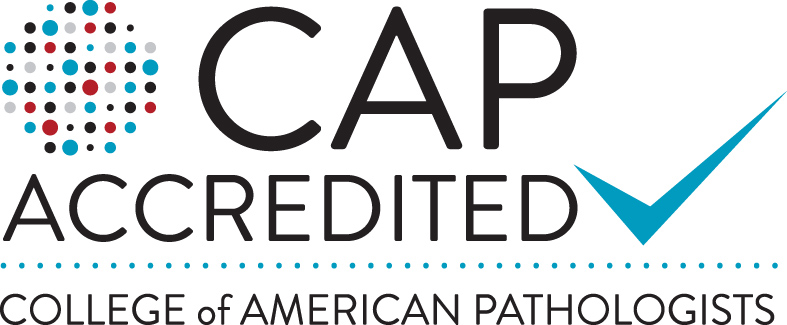Sample Guidelines
We accept most types of primary microbial communities, as well as prepared genomic DNA. Sending sufficient quantities of well-prepared material is the best way to ensure your samples are able to return high quality data.
Please review the guidelines below to optimize your samples for processing.
If you have any questions, our team is here to help guide your study using our expertise in experimental design, sequencing, and data analysis.
Contact us with questions.
Sample Collection
Please note that sample collection can greatly impact the results of your study. We are happy to discuss the best approach for you prior to starting your collection.
Please contact us to discuss collection practices that will allow us to best process your samples, as well as considerations to make for specific sample types.
Samples can be collected in a number of different ways. Below are the accepted formats we usually handle:
- Fresh-frozen samples (feces, GI contents, biopsies, other)
- Fresh-frozen skin swabs
- Fresh-frozen environmental swabs
- Soil
- DNA Genotek collection tubes
- Other microbiome collection tubes
We are happy to work with any samples you have outside of this format, contact us for more information.
Sample Preservation Buffers
Planning to use a collection buffer?
Fresh-frozen samples yield the best DNA extraction results, but sometimes collecting in a preservation buffer allows for ease of collection and storage.
We will need to know the following to ensure the best DNA extraction for your samples:
- Which buffer
- Contents of the buffer
- Buffer-to-sample ratio
Sample Aliquot Guidelines
Diversigen accepts aliquots of your primary microbiome samples.
We advise customers to never ship an entire primary sample, as re-collection is almost impossible.
When storing in-house and shipping aliquots to Diversigen, please use the guidelines below.
Genomic DNA (gDNA)
If you are preparing DNA to send to Diversigen, please contact us to discuss optimizing extraction for our processing pipeline.
We prefer samples are extracted using bead beating in 0.1mm glass bead plates or tubes with the QIAGEN PowerFecal or PowerSoil Pro kit.
In full-skirt 96 well plates:
- Each plate must have a maximum of 88 samples (8 wells MUST be blank for internal controls)
- Tubes should be no larger than 2 mL
- 50 uL of each sample with a minimum concentration of 10 ng/uL by PicoGreen or Qubit
- All sample-containing wells in the plate should contain the same volume
- Samples should have the same concentration of elution buffer used to elute samples – water or a different buffer should not be used to bring individual samples up to the correct volume
- Plates should be sealed with a non-puncture foil seal and should be sent frozen on dry ice
- SampleIDs and supplementary metadata such as timestamps, grouping, or treatments can be submitted separately in a sample submission form for use in data analysis
- All material should be frozen immediately upon collection and stored at -80°C until it can be sent on dry ice
In individual tubes:
- Tubes containing primary sample should be no larger than a 2 mL
- 50 uL of each sample with a minimum concentration of 10 ng/uL
- All tubes should contain the same volume
- Samples should have the same concentration of elution buffer used to elute samples – water or a different buffer should not be used to bring individual samples up to the correct volume
- All tubes should be labeled with a simple naming or numbering system, and
supplementary metadata such as timestamps, grouping, or treatments can be submitted separately in a sample submission form for use in data analysis - All material should be frozen immediately upon collection and stored at -80°C until it can be sent on dry ice
Raw Biospecimens
In glass-bead plates:
- Samples can be sent in glass bead plates available for purchase from Qiagen (cat. no. 19311)
- Glass bead plates must contain a maximum of 88 samples (8 wells must be empty)
- Samples submitted in tube or swab form can be transferred to glass bead plates on-site for an additional fee
- For all specimens, we prefer ~ 250 mg of material
- All material should be frozen immediately upon collection and stored at -80°C until it can be sent on dry ice
Individual tubes:
- Tubes containing primary sample should be no larger than 2 mL
- For all specimens, we require ~ 250 mg of material
- For cells in culture, a minimum of 1 x 10^9 cells should be spun down and supernatant removed prior to freezing
- All tubes should be labeled with a simple naming or numbering system, and
supplementary metadata such as timestamps, grouping, or treatments can be submitted separately in a sample submission form for use in data analysis - All material should be frozen immediately upon collection and stored at -80°C until it can be sent on dry ice
Shipping
- Samples should be shipped overnight to Diversigen with a tracking number provided at the time of shipment.
- Please do not ship samples such that they will arrive on a Friday (to avoid any potential weekend delays).
- Samples can be shipped using a courier of your choice and should have an accompanying electronic sample submission form emailed to your Diversigen service coordinator.
Samples can be shipped to:
Please contact us if you are unsure where to send your samples
Diversigen Inc.
600 County Rd D West, Suite 8
New Brighton MN, 55112
Diversigen provides services and generates data for research purposes only. Not all services are available in all regions.


